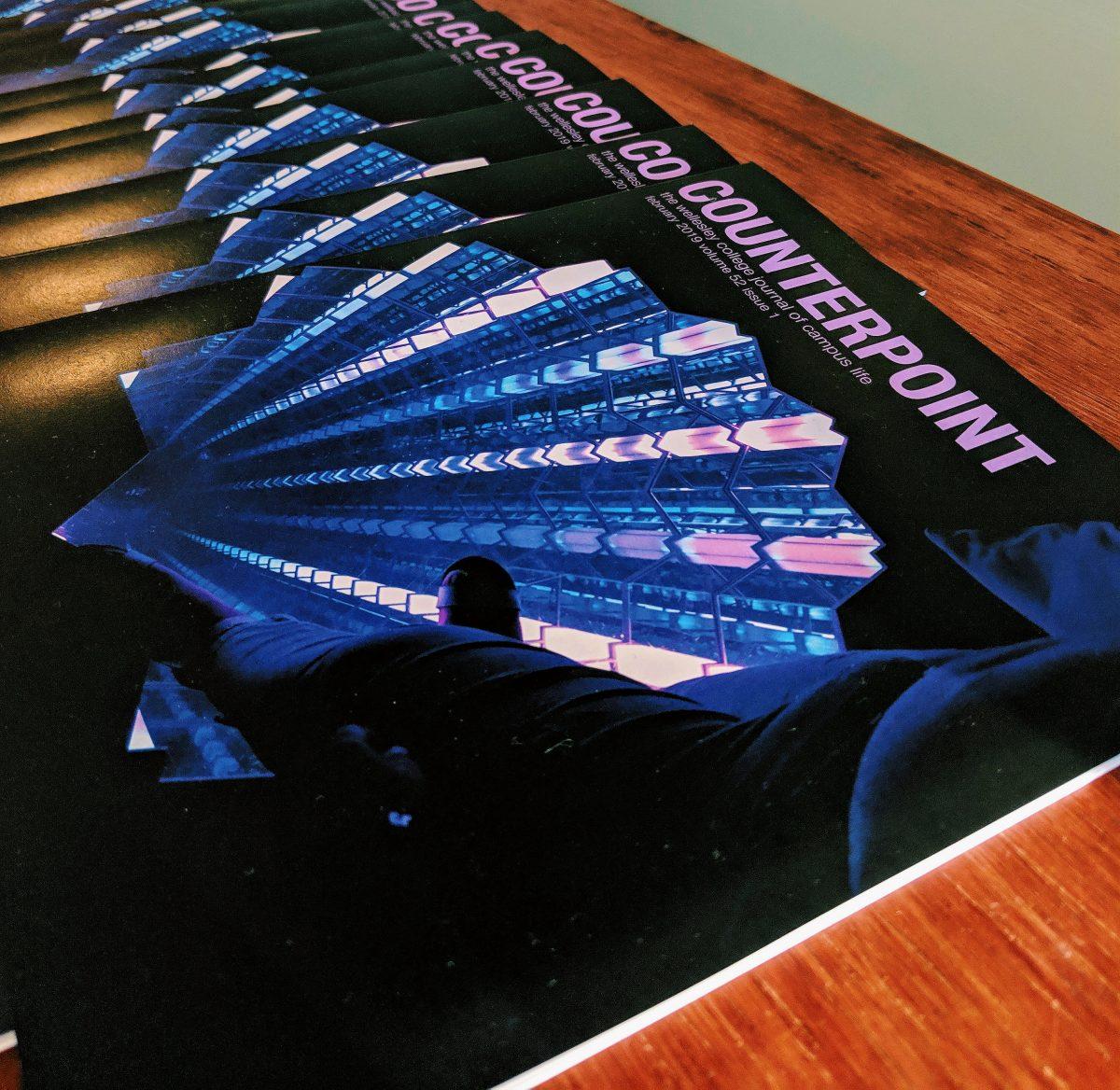This week, the on-campus magazine Counterpoint requested that College Government (CG) grant them Guaranteed Percentage funding status (GP). GP status would allow them to be given a set percentage of the Student Organization Funding Committee (SOFC) budget every semester, regardless of its member numbers or how many issues it publishes.
GP status is given to a few organizations on campus which have demonstrated to the College Government that they serve an essential purpose for the student body of Wellesley. These organizations receive their funding at the beginning of the academic year without having to apply for it before normal SOFC deadlines like non-GP organizations. As a result of changes implemented by SOFC, organizations only apply for funding annually. SOFC and College Government review organizations with GP status every two years in order to assess their role among the student body of Wellesley.
Counterpoint is one of the oldest organizations on campus. The student-run magazine was founded in 1991 as a platform for unrepresented ideas ranging from politics to arts to personal reflections. Every month, they publish a short magazine of about 24 pages or less with articles, anecdotes, polls and crosswords. As one of the most popular publications on campus, Counterpoint publishes about 600 magazines in one cycle. In the case that the demand of Counterpoint grows in one month, the magazine usually covers the production costs through fundraising or the members themselves.
According to the e-board’s presentation for GP status at the Senate this week, students pick up to 70 percent of their copies in circulation in the first three days of release. The website also reaches 13,600 unique people every month. The organization only incurs two types of costs: production/printing cost and website maintenance cost.
Last semester, Counterpoint had their funding drastically cut by a whopping 60 percent. As a result, Counterpoint experienced a severe depletion of resources and was forced to lower the number of magazine copies printed, thus not meeting the projected student demand. “SOFC had to make some tough decisions since so many orgs applied for funding, and we understand why they chose to cut funding across the board, but it really took a toll on Counterpoint,” said Francesca Gazzolo ’20, the managing editor of Counterpoint. Because of cuts to funding, the magazine printed 300 copies instead of the typical 600. Even after cutting the number of issues, they still had to engage in massive fundraising efforts, asking students and alums alike for donations to cover the cost of the magazine. Due to the urgency of the situation, many members had to pay out-of-pocket to cover the cost of printing the magazine. Not only was Counterpoint unable to meet the student demand for the magazine, they were barely able to meet the production cost of half of the issues themselves.
According to Counterpoint Features Editor Seren Riggs-Davis ’21, the cut in funding did have some positive effects for the magazine staff. “The budget cut brought about a lot of good change. We found creative ways to fundraise, so now we have stickers, posters, and sweatshirts,” said Riggs-Davis. The fundraising efforts of Counterpoint, especially the selling of merchandise, led to a stronger appeal for the magazine among the student body.
Because of the sudden cut to their funding and its drastic effects on the magazine last semester, Counterpoint decided to apply for GP status.
In order to attain GP funding status, Counterpoint must also be reviewed by SOFC, led by the Student Bursar. “SOFC approved their request for GP funding, because they proved that the publication is very well-read across campus and has impacted students across campus. It was very well researched, and they provided both qualitative and quantitative data to show why they should get GP funding,” said Student Bursar Gina Scorpiniti ’19.
If Counterpoint were awarded GP status, funding them would not impact the funding available for all other organizations on campus. During the Senate meeting when a student brought up this question to Student Bursar Gina Scorpiniti ’19, she elucidated, “GP orgs have a maximum of 40 percent of the student-activity fee they can use. So, if more orgs are allowed to become GP, those GP orgs would get less money overall, but regular orgs would not be affected. Also, Counterpoint’s costs wouldn’t affect GP org funding as they really only cover their printing costs and their website.”
The College Government voted on March 4 to award GP status to Counterpoint after approval by 78 percent of the senators. In the event that the Senate agrees to give GP status to Counterpoint, this will allow them to slowly increase the amount of magazines published every month from 600 copies per semester. GP status will allow Counterpoint to focus more on the quality of their paper, instead of on reapplying for funding every year or having their funding drastically changed, in the event of a low availability of funds. Other organizations on campus can have a boost in funding by partnering with GP organizations. For instance, Counterpoint partnered with Ethos for Black History Month. By having a larger and more reliable pool of funds, they can help out with the financial needs of their partner organizations as well, and have a plethora of opportunities to raise student voices on campus.






